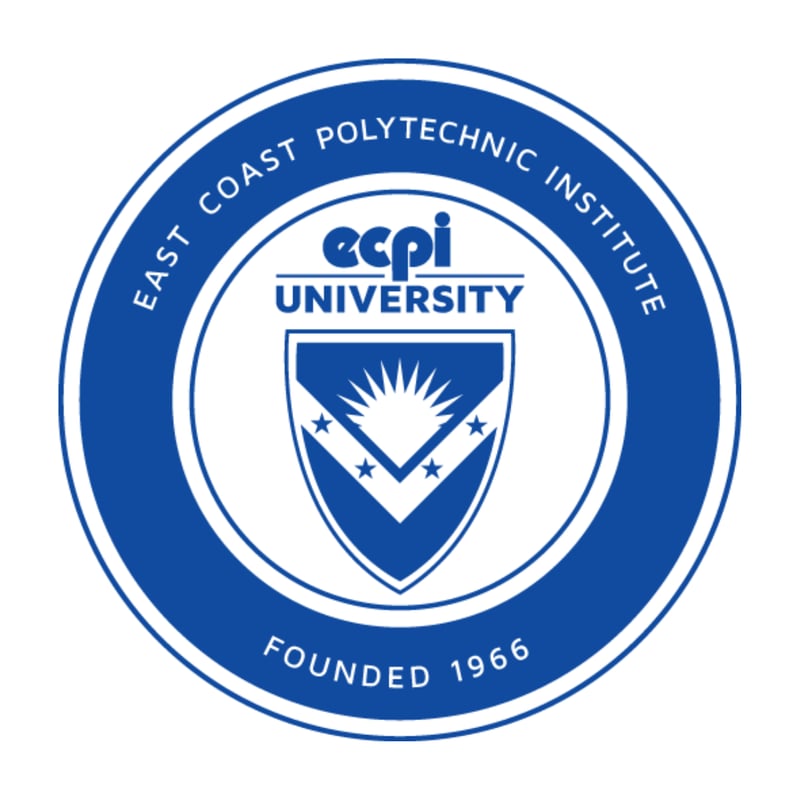
Financial aid (may be available)

No cost info

Financial aid (may be available)

Financial aid (may be available)

Financial aid (may be available)

Financial aid (may be available)

Financial aid (may be available)

No cost info

Financial aid (may be available)

Financial aid (may be available)

No cost info

Financial aid (may be available)

Financial aid (may be available)

Financial aid (may be available)
American Military University (AMU) offers a logistics management certificate at the graduate level. It provides in-depth study of logistics and supply chain management with consideration of global impacts.
AMU’s online logistics certificate emphasizes transportation factors related to logistics, especially the maritime industry. The curriculum covers topics such as:
Transportation policy and planning
Transportation management and economics
Port and terminal operations
This program is an appropriate choice for those who wish to increase their knowledge of logistics and supply chain management without committing to a full degree program.
No cost info
No cost info
The online Logistics and Supply Chain Management Certificate from CCU will help you gain a deeper understanding of the processes and fundamentals within supply chain and inventory management, including purchasing and inbound logistics; material handling in distribution centers; warehousing and warehouse management; financial and inventory controls; transportation and distribution; and reverse and global logistics.
No cost info

$2,730 total

No cost info
No cost info
Learn about the components of supply chains including supply chain networks, supply chain facilities, transportation, and inventory management as well as how emerging technologies affect them with our Supply Chain Fundamentals Certificate. These courses are perfect for learners seeking to enter the supply chain profession, as well as those who are seeking to enter supervisory roles or enter a new domain within the supply chain.
No cost info
This certificate program provides a foundation in supply chain and logistics management from both a U.S. as well as global perspective, preparing participants for professional careers with manufacturers and distributors, transportation carriers, and logistics service providers.
No cost info

Financial aid (may be available)

$2,625 total
Logistics is an essential aspect of any business or organization that involves the management of the flow of goods and services from the point of origin to the point of consumption. It plays a crucial role in ensuring the efficient and effective movement of products, materials, and information throughout the supply chain.
If you're interested in pursuing a career in logistics, finding the right training program is crucial. In this blog post, we will explore logistics classes near you in Urban Honolulu and provide you with valuable information on what to expect from these classes and how to find related job opportunities.

Before diving into the details of logistics classes near you in Urban Honolulu, it's important to understand the training requirements for this field. While some entry-level positions may only require a high school diploma or equivalent, most employers prefer candidates with some level of formal education or training in logistics.
Logistics classes can be found at vocational schools, community colleges, and specialized training centers. These programs typically offer certificates or associate degrees in logistics or supply chain management. The duration of the programs can vary, ranging from a few weeks to several months or even years, depending on the level of education and the depth of the curriculum.
When choosing a logistics class, it's important to consider several factors to ensure that you receive the best education and training possible. Here are some key things to look for:
Accreditation: Make sure the logistics class you choose is accredited by a recognized accrediting body. This ensures that the program meets certain standards of quality and rigor.
Curriculum: Review the curriculum of the logistics class and ensure that it covers all the essential topics and skills required in the field. Look for classes that offer a balance of theoretical knowledge and practical hands-on experience.
Faculty: Research the qualifications and experience of the faculty members teaching the logistics class. Experienced instructors with industry expertise can provide valuable insights and guidance.
Facilities and Resources: Check if the logistics class has access to modern facilities and resources, such as simulation labs, computer software, and industry-specific equipment. These resources can enhance your learning experience and better prepare you for real-world scenarios.
Logistics classes typically involve a combination of classroom lectures, hands-on practical training, and industry visits. Here's what you can expect from the day-to-day logistics class:
Classroom Lectures: Logistics classes will cover a range of topics, including supply chain management, inventory control, transportation management, warehousing, and distribution. You will learn about the key principles and concepts of logistics and how they are applied in different industries.
Hands-on Training: Many logistics classes include hands-on training opportunities, such as computer simulations, case studies, and group projects. These activities allow you to apply the knowledge you've gained in real-world scenarios and develop practical skills.
Industry Visits: Some logistics classes may organize visits to local businesses or logistics companies. These visits provide you with the opportunity to see firsthand how logistics operations are carried out and gain insights from industry professionals.
After completing a logistics class, you may have the option to pursue certification as a logistics professional. While certification is not always required, it can enhance your job prospects and demonstrate your commitment to the field. The certification process typically involves the following steps:
Eligibility: Check the eligibility requirements for the certification program you're interested in. Some certifications may require a certain level of education or work experience.
Preparation: Prepare for the certification exam by reviewing the exam content outline and studying the relevant materials. There are various study resources available, including textbooks, online courses, and practice exams.
Exam: Schedule and take the certification exam. The exam may include multiple-choice questions, case studies, or practical assessments.
Certification: If you pass the exam, you will receive your certification, which is usually valid for a certain number of years. To maintain your certification, you may need to complete continuing education requirements or renew your certification periodically.
Once you have completed your logistics class and obtained any necessary certifications, it's time to start your job search. Here are some strategies to help you find job opportunities in the field of logistics:
Networking: Build a professional network by attending industry events, joining logistics associations, and connecting with professionals on platforms like LinkedIn. Networking can lead to job openings and valuable connections in the industry.
Company Websites: Visit the websites of logistics companies in Urban Honolulu and check their career pages for job openings. Many companies post their job vacancies directly on their websites.
Job Fairs: Attend local job fairs and career expos that focus on logistics or supply chain management. These events bring together employers and job seekers, providing opportunities for networking and job interviews.
Once you have gained experience and established a career in logistics, you may want to consider furthering your education and expanding your skill set. Here are some other classes you can consider after completing a logistics program:
Project Management: Project management skills are highly valued in the logistics industry. Taking a project management class can help you develop the skills needed to plan, execute, and manage complex logistics projects.
Six Sigma: Six Sigma is a methodology aimed at improving business processes and reducing defects. Taking a Six Sigma class can enhance your problem-solving and process improvement skills, making you a valuable asset in the logistics field.
Supply Chain Analytics: With the increasing use of data in logistics operations, supply chain analytics has become a crucial skill. Taking a class in supply chain analytics can teach you how to analyze data, identify trends, and make data-driven decisions in logistics.
If you're interested in pursuing a career in logistics, taking logistics classes near you in Urban Honolulu can provide you with the necessary knowledge and skills to succeed in the field. By researching and selecting the right logistics class, you can enhance your job prospects and open up opportunities for career growth. Remember to utilize resources like Dreambound to find the best logistics classes and job opportunities available to you.
Dreambound has put together numerous guides to help you navigate the certification process in this field, tailored for various cities. For insights into the process or requirements in other states, see some of our additional guides below.
Thinking about making a big change in your career path? It's important to be well-informed before starting off on your journey. Dreambound has written hundreds of in-depth guides to help. Explore some of these resources below.
Dreambound's platform allows prospective students to find the right educational program for them through searching, filtering, and connecting with our extensive selection of career & technical education partners.
Dreambound has over 70 programs across healthcare, technology, business, and industrial trades. This includes programs such as Medical Billing, Cybersecurity, and welding.
Some of our schools offer financial aid for those who qualify. Many others offer payment plans, where you can pay the cost of class over time.
Yes, Dreambound offers many online programs. On Dreambound's search, you can filter by online, in-person, and hybrid (part online, part in-person).
Dreambound is completely free for you to use! We are supported by schools and organizations who pay to advertise on our website, so we can offer all of our career resources for free.